In Brazil, 5th graders promote good practices to reduce food waste
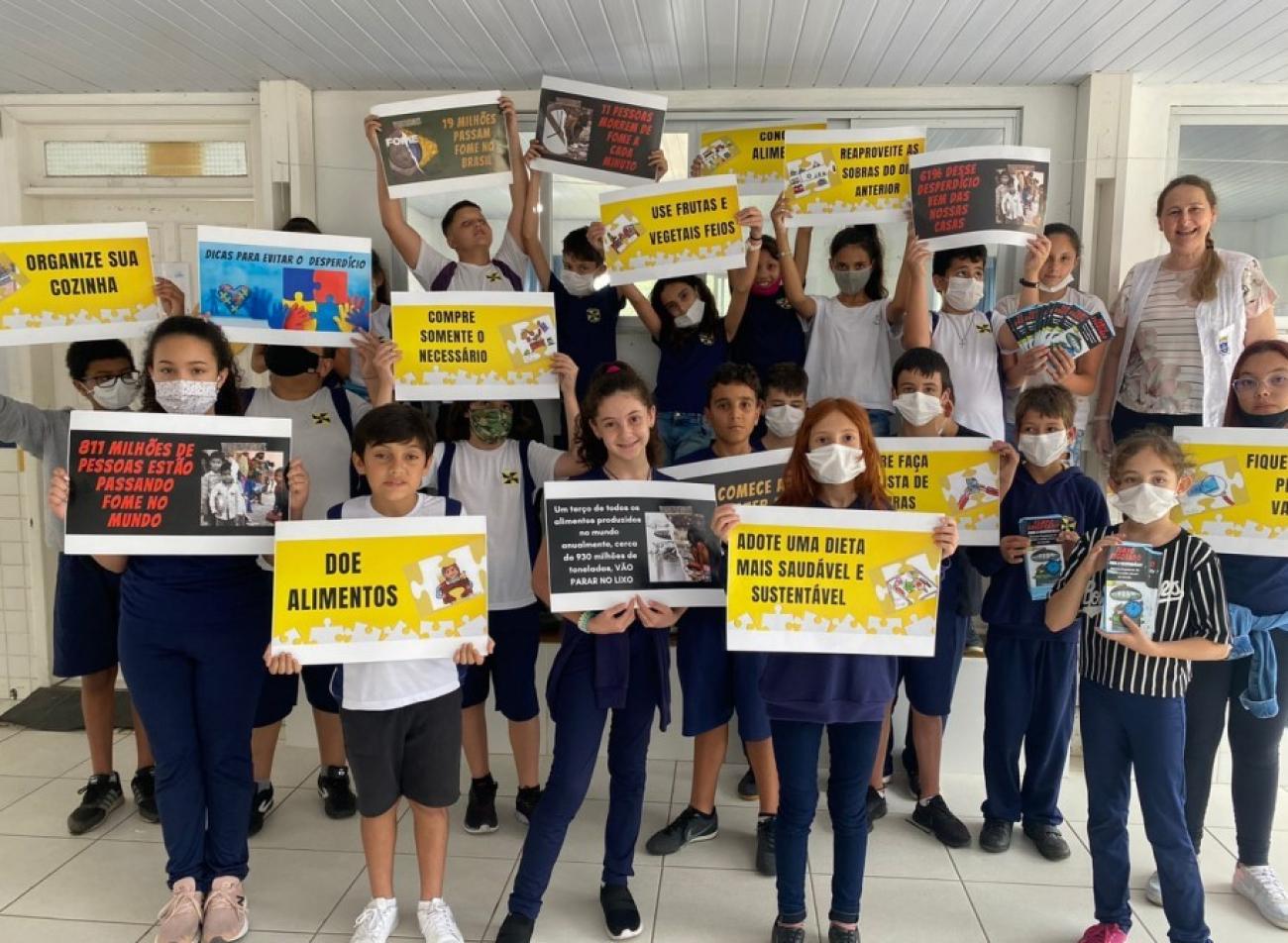
In the municipality of Itajaí, in the southeastern Brazilian state of Santa Catarina, global facts and figures about the lack of access to food have significantly changed day-to-day dynamics in the lives of 46 fifth-graders at Escola Básica Professor Judith Duarte de Oliveira, an elementary school.
It was a result of their teacher, Patrícia Wanderlinde Alves, being deeply moved by the figures related to famine. According to the World Food Programme (WFP), 881 million people don’t have enough food worldwide – while 48.6 million Brazilians face moderate or severe food insecurity.
Also moved by the most recent figures on food waste disclosed by the UN Environment Programme (UNEP) – in 2019, 931 million tons of food went directly to the trash – Patrícia decided to introduce to the class how to reduce waste and change consumption habits at school and at home.
As their teacher, she took the lead and developed and implemented the project, “Time Out” (Tempo Esgotado, in Portuguese), for this group of 10-year-old students. The project kicked off in 2021 and became a regular undertaking in 2022, implemented once a year.
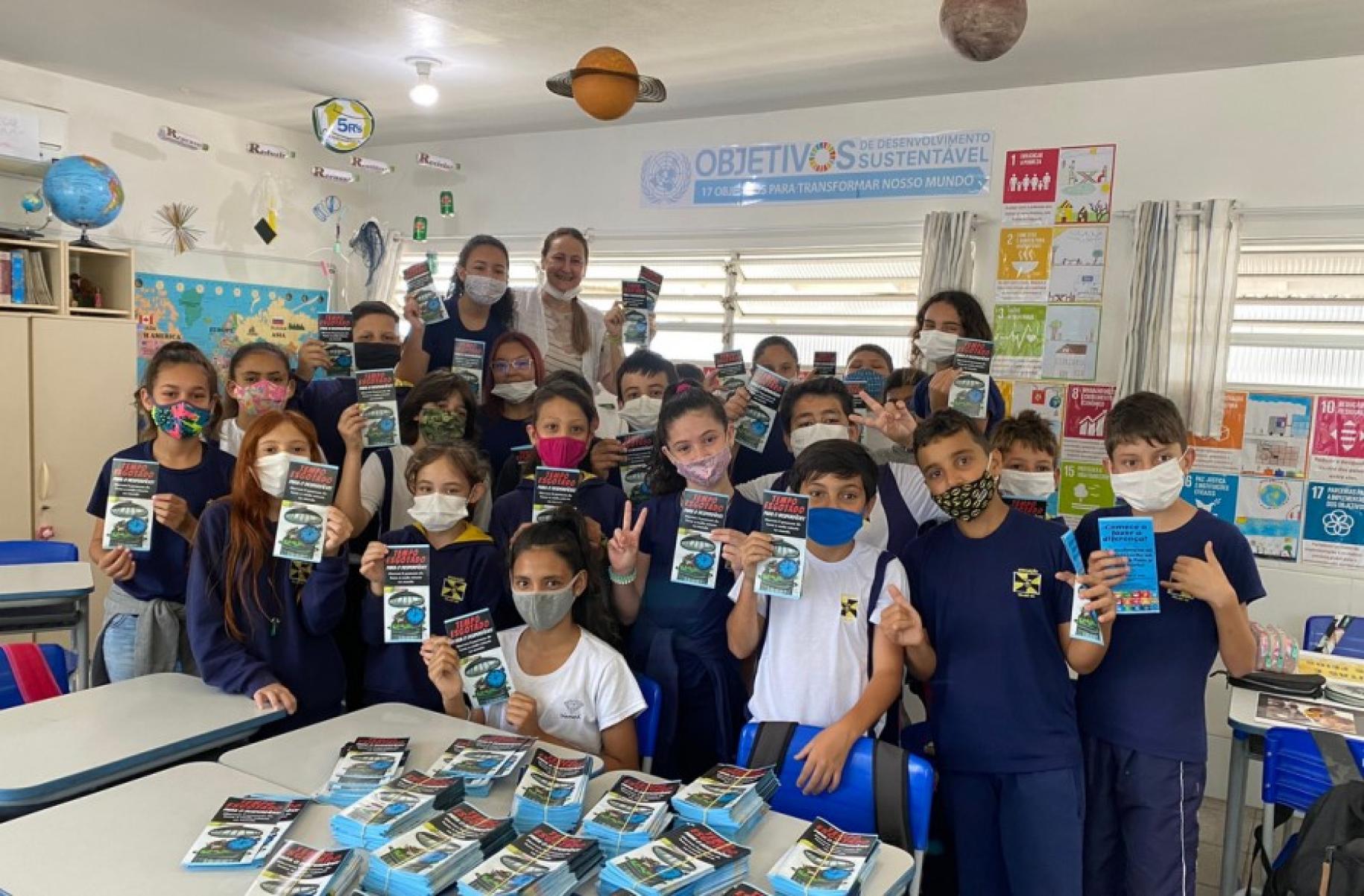
During a week, they wrote down everything they ate and wasted. Surprised by the results, they gathered information about conscientious food consumption and created folders and posters which were handed out at school, on buses and at shopping points.
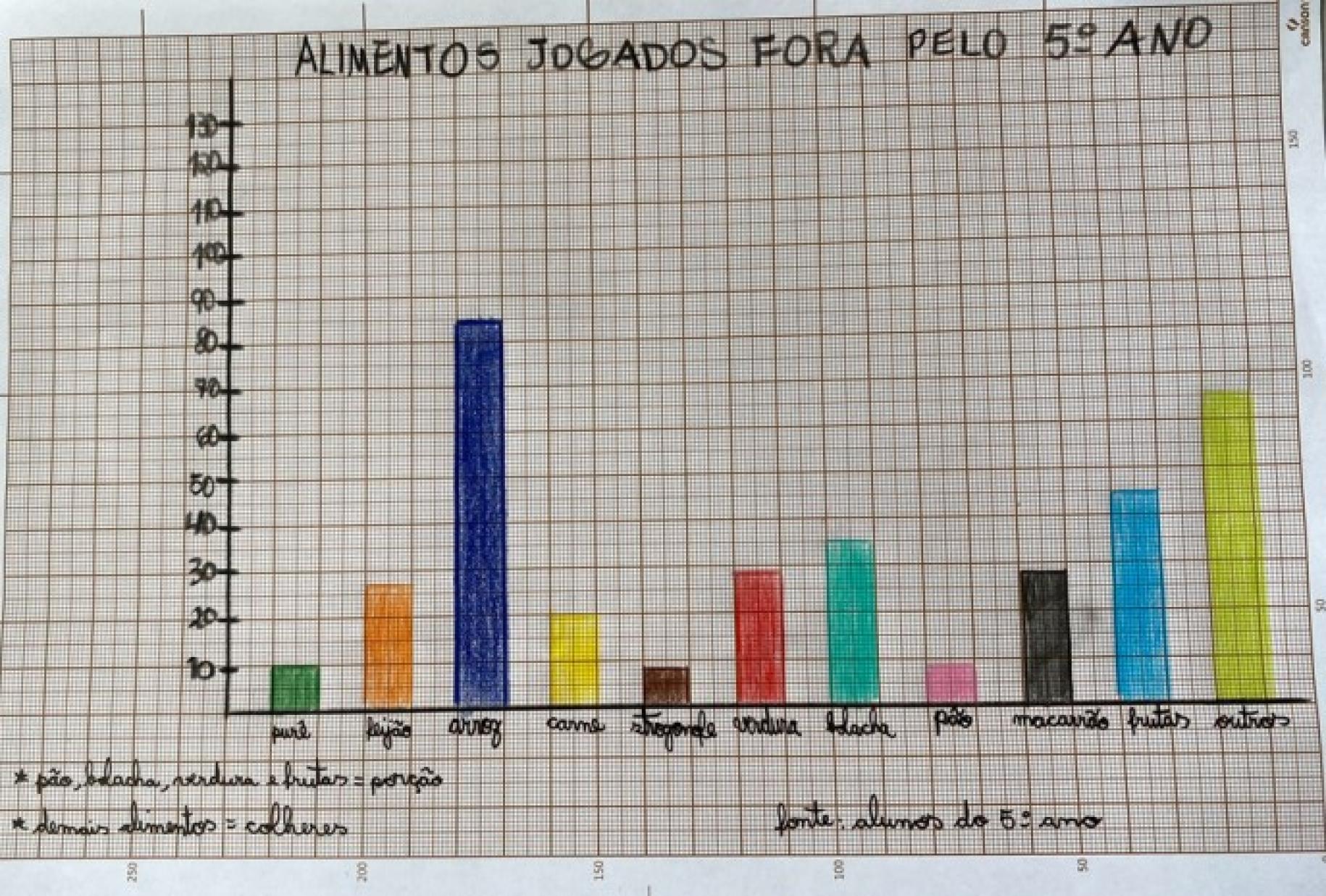
The students also gave lectures to other classes at their school, which were recorded and made available on a YouTube channel. The project was developed with information from the Sustainable Development Goals (SDGs) and also included a short film showing how food waste happens at home.
“The kids were really engaged in the project. The videos and folders were their idea. The students collected food for families in need, which made the entire school get involved in the project,” explains Patrícia, who intends to retake action and repeat the initiative this year.
In the end, the work undertaken even resulted on financial awareness, said the teacher in an interview with the UN Information Centre (UNIC) in Brazil.
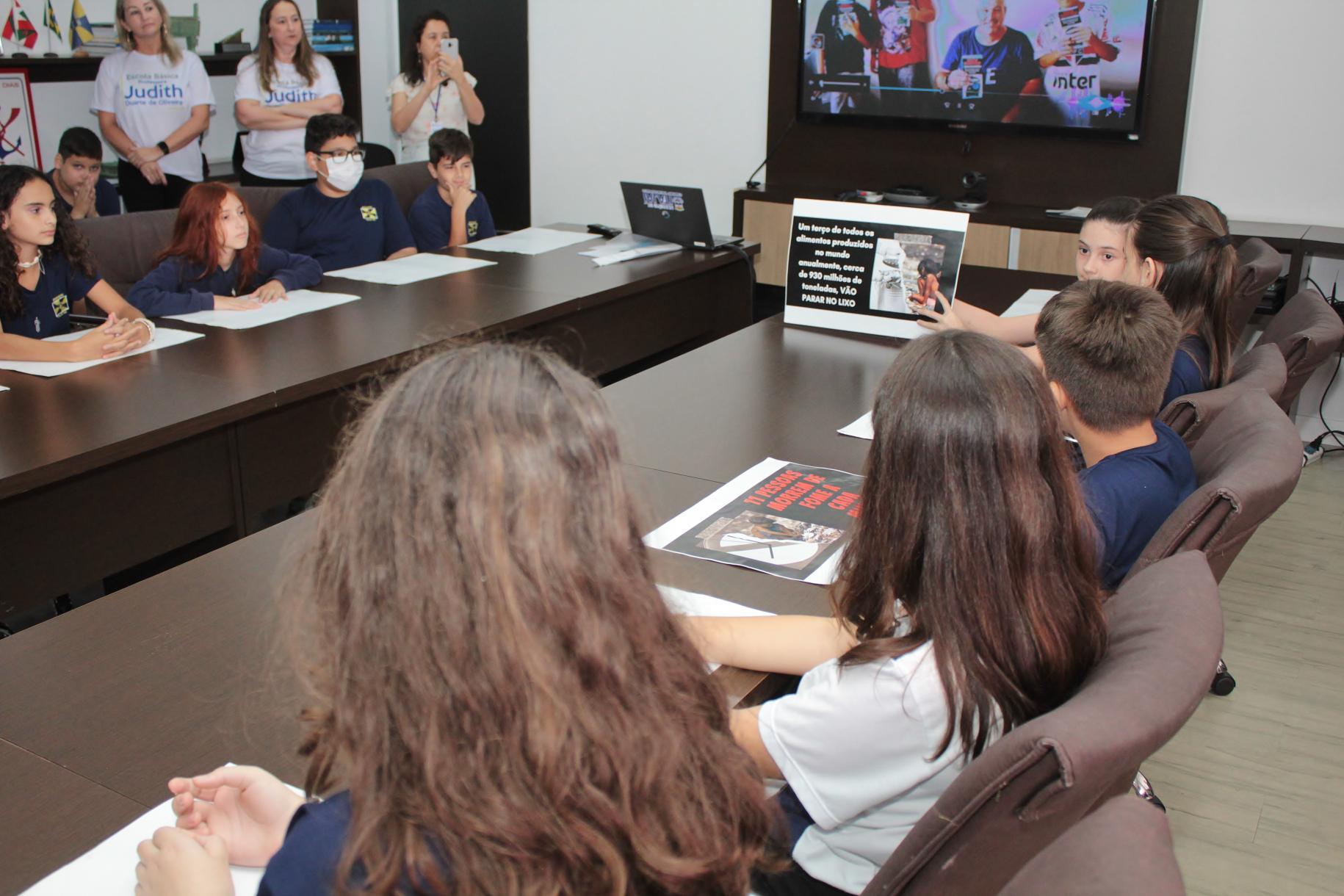
Students raising their voices
“I really liked this project; it made me very aware of the hunger the world is facing. We cannot see all this waste happening and not do something about it!” explained a student, Henrique Rafael.
Another classmate, Maria Luíza, says that the information has changed her routine at home: “I will carry this project with me throughout my life. The attitudes in my house have changed a lot. My father started using leftovers from the previous day. My mother didn’t use any fruit that seemed to have gone bad, and now she learned how to do it”, she explains.
For Gustavo, the project can help all of Brazil. “Every minute, 11 people die of hunger, which is very sad. So, we must stop throwing food in the rubbish!” the boy warns.
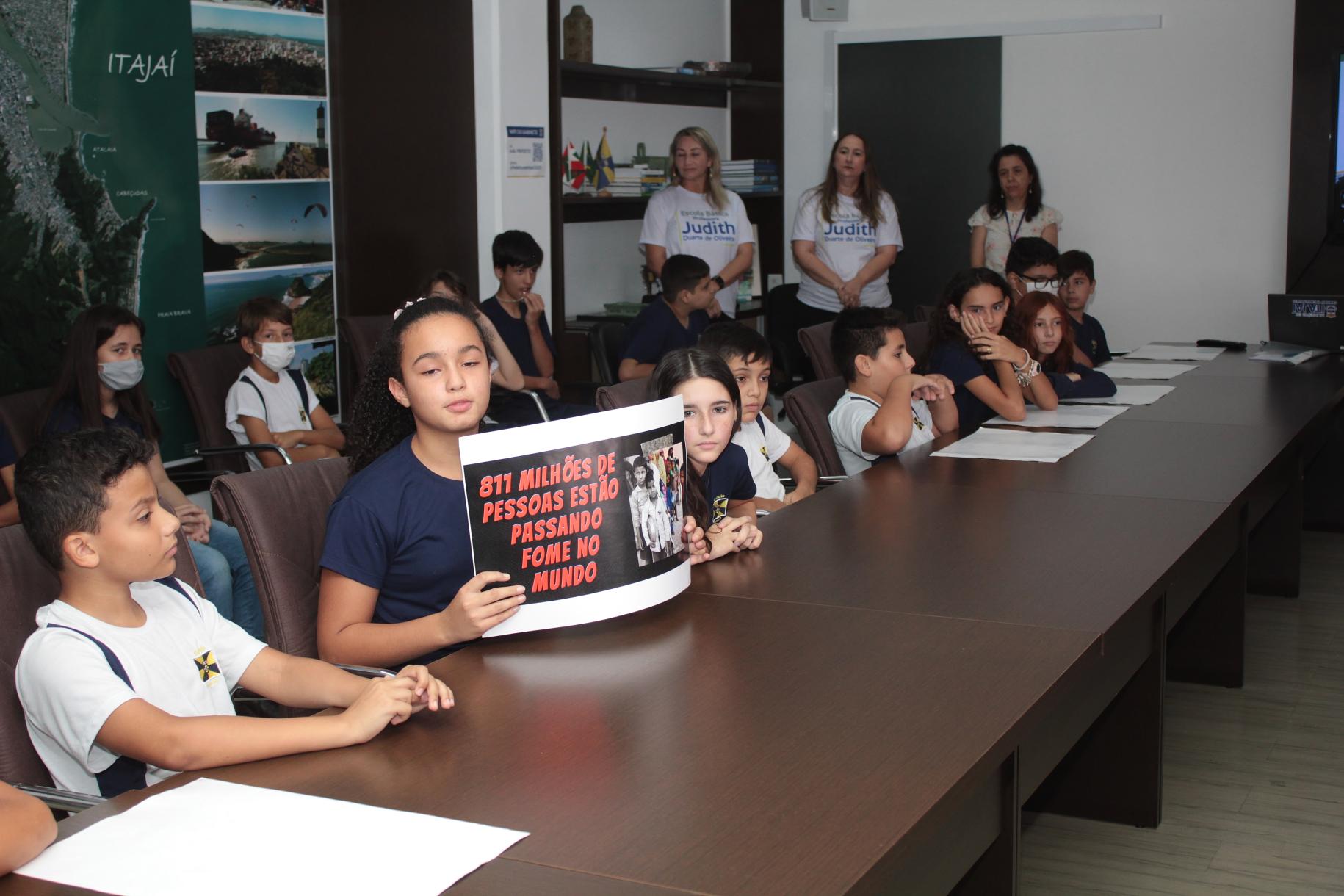
Schools are key
Projects such as the one described above are crucial for sustainable school meals. According to Najla Veloso, FAO Project Coordinator of the Consolidation of School Feeding Programmes in Latin America and the Caribbean — an international cooperation programme between Brazil and the Food and Agriculture Organization (FAO) — this kind of work blends learning with other areas of knowledge, creating connections between local realities and daily lives of students.
"Actions to fight waste and for food and nutrition education are important to stimulate intellectual, physical, emotional and social development of students. In addition, by encouraging healthy habits, schools build healthier environments, since habits are also passed on to family members and to the entire community," explains Najla in her representative capacity of the FAO Regional Office for Latin America and the Caribbean.
Schools are also fundamental to fighting hunger. According to FAO, the Brazilian National School Meals Programme (Programa Nacional de Alimentação Escolar, PNAE, in Portuguese) serves almost 41 million students daily due to its universal coverage. PNAE is considered a regional and global reference for successful public policy.
WFP also works to fight waste and overcome hunger. Every year, WFP runs a global awareness campaign called Stop the Waste (Zerar o Desperdício, in Portuguese) and operates the Centre of Excellence against Hunger with the Brazilian government.
The Centre’s goal is to support developing countries in creating and implementing sustainable solutions to hunger based on successful experiences designed in Brazil. Last November, the WFP Center of Excellence in Brazil celebrated its 10th year since it was launched as a result of an innovative partnership between WFP and the Brazilian government, under the scope of South-South and Trilateral Cooperation in developing countries in Africa, Asia, Latin America and the Caribbean (LAC).
Fostering sustainable school feeding initiatives and inclusive and resilient agrifood systems
Food and nutrition security are critical areas for Latin America and Caribbean community and Common Market.
With the participation of 10 LAC countries and Caribbean institutions gathered in Brasília, Brazil at the beginning of the month, the technical committee of the Regional Dialogue with Latin America and Caribe 2022, organized by the Sustainable School Feeding Network (Red de Alimentación Escolar Sostenible, RAES, in Spanish) was officialized. The hybrid event featured numerous school feeding specialists and technicians.
According to Najla, dialogues and international cooperation tools, like RAES, leverage cooperation toward sustainable school feeding programmes and more inclusive and resilient agrifood systems in the region and beyond.
Did you know that in 2021, the SDGs with the highest financial execution by the UN in Brazil were “No Poverty” (SDG1) and “Zero Hunger” (SDG2)? Learn more in UN Brazil’s Annual Results Report 2021 (Relatório Anual das Nações Unidas no Brasil 2021, in Portuguese).
Photo essay inspired by a piece originally published in Portuguese on UN Brazil’s website and produced by the UNIC in Rio de Janeiro, Brazil.
Edited by the UN Development Coordination Office on the occasion of the International Day of Awareness of Food Loss and Waste with the help of the UNIC, FAO, and WFP in Brazil.
For more information about the UN’s work in Brazil, please visit Brasil.UN.org. To learn more about the results of our work on food systems and the 2030 Agenda and beyond, please read the 2022 UNSDG Chair Report on DCO.





































